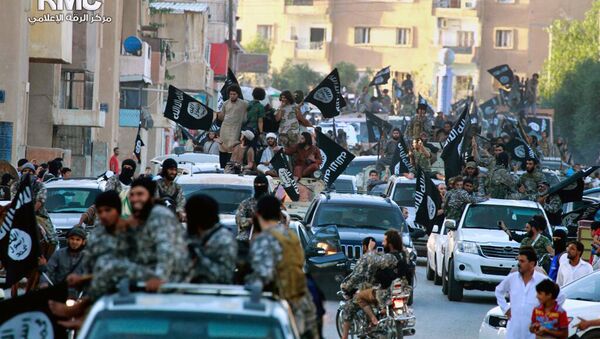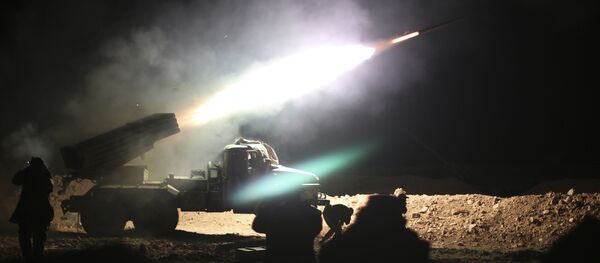“The goal now should be first, to get the Daesh out of Raqqa, and second, to do it as a joint effort with a tactical consensus between Russia and the United States,” Braun stated.
Braun expressed hope that a temporary arrangement could be worked out that would give relief to long-suffering civilians in the city, who face the prospect of starvation after months without access to relief supplies.
Two armies that consider each other enemies are currently squeezing Raqqa’s Islamic State rulers from different directions: The US-backed Syrian Democratic Forces (SDF) have positioned themselves in Raqqa’s northern suburbs while the Russian-backed Syrian army of President Bashar Assad moves in on the city from the southwest.
Braun noted that the threat and actions of the Daesh are so horrific, and its medieval brutality so beyond the pale “that we have to be creative and make unusual arrangements.”
As a result, the vexing dilemma of rival forces controlling the capital of the terrorist group’s self-declared Islamic caliphate poses the threat that the city’s liberators could end up fighting each other, Braun explained.
“It would be naive to believe that there is an ideal outcome in this [fight],” he observed.
“There may be tension or possibly violence between those two groups, the Syrian Democratic Forces and the Syrian army, according to Braun.
Even a tenuous, unstable and unpredictable arrangement is preferable to the current situation, he added.
Braun compared Raqqa to Berlin immediately following the Second World War, which left the German capital divided in a tense standoff between Soviet and allied troops that came to symbolize the subsequent Cold War.
Russian Foreign Minister Sergei Lavrov said earlier this week Moscow hopes its US partners will honestly cooperate on Raqqa’s liberation without seeking to implement “Plan B” or “Plan C” behind Russia’s back.
US officials continue to say publicly that the two countries are not cooperating.
Braun posited a scenario in which the United States and Russia could pressure their respective proxies in Raqqa to behave.
“There would have to be monitoring and control of any new repressions that these [SDF and Syrian army] forces may wish to inflict on any part of the population of Raqqa,” he explained.
Braun added that “tactical cooperation” between the United States and Russia could provide an opening for improved relations between the two countries.
Aurel Braun is currently a professor of international relations and political science at the University of Toronto and a visiting professor at Harvard University’s Davis Center for Russian and Eurasian Studies.



